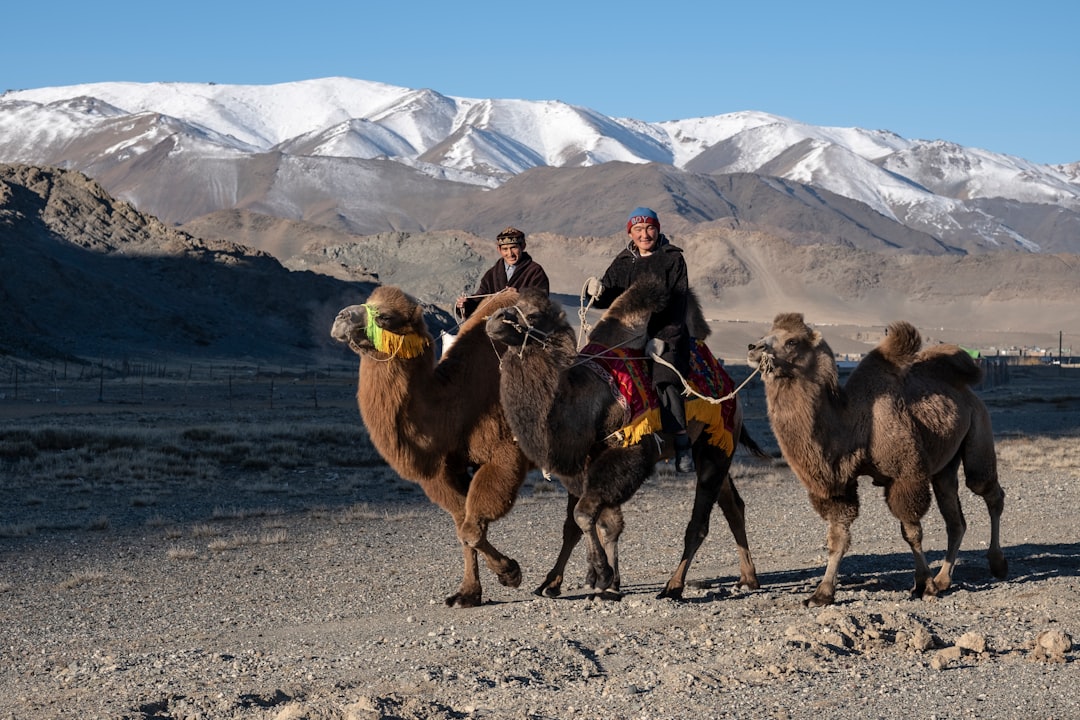The Complete Resource List for Modern Nomads

Introduction
The modern nomad lives in a world where borders are fluid, Wi‑Fi is ubiquitous, and the concept of a “home office” stretches across continents. Whether you are a digital freelancer, a remote employee, a location‑independent entrepreneur, or simply a traveler who wants to stay productive on the road, the right resources can turn a chaotic journey into a smooth adventure. This guide compiles the most trusted apps, books, podcasts, and online courses that have helped thousands of nomads design a lifestyle that balances work, exploration, and personal growth.
Each resource is grouped by the challenge it solves, and brief commentary explains why it stands out, what you can expect, and how to get the most out of it. Use this list as a launchpad, mix and match the tools that fit your style, and keep revisiting the sections as your needs evolve.
Apps for Navigation, Planning and Daily Life
Flight and Travel Booking
- Skyscanner – A global search engine that compares airlines, travel agents, and budget carriers. The “Everywhere” feature helps you discover cheap destinations when you have flexibility.
- Google Flights – Offers powerful price‑tracking alerts, calendar‑based price trends, and the ability to explore destinations on a map.
- Hopper – Uses historical data to predict when ticket prices will rise or fall, letting you book at the optimal moment.
Accommodation
- Airbnb – Ideal for short‑term stays, with filters for Wi‑Fi, work‑friendly spaces, and pet‑friendly listings.
- Booking.com – Provides a wider range of hotels, hostels, and apartments, often with free cancellation.
- Hostelworld – Perfect for budget travelers who want to meet other nomads in shared spaces.
Transportation on the Ground
- Rome2rio – Visualizes all transport options (flights, trains, buses, ferries, rideshares) between two points, complete with price estimates.
- Google Maps – The go‑to navigation app for driving, walking, cycling, and public transit. Offline map downloads are essential for low‑data regions.
- Citymapper – Offers real‑time public transit data for major cities, including alerts for service disruptions.
Language and Communication
- Duolingo – Gamified language lessons that let you practice on the move. Ideal for building a basic conversational foundation.
- Tandem – Connects you with native speakers for language exchange via text, voice, or video.
- Google Translate – Instant translation of text, speech, and images; the “conversation mode” bridges live dialogue gaps.
Productivity and Work Management
- Notion – An all‑in‑one workspace for notes, databases, task boards, and knowledge bases. Templates for travel itineraries and project tracking are widely shared in the nomad community.
- Todoist – Simple yet powerful task manager with natural language input and cross‑platform sync.
- Trello – Visual kanban boards that help you break down projects into actionable cards.
Time Zone Coordination
- World Time Buddy – Easy visual comparison of multiple time zones, essential for scheduling calls with clients or teammates across continents.
- Every Time Zone – Minimalist clock display that shows current times in selected cities.
Finance and Budgeting
- Revolut – Multi‑currency debit card with real‑time exchange rates, budgeting tools, and the ability to hold up to 30 currencies.
- Wise (formerly TransferWise) – Low‑cost international money transfers and a borderless account that lets you receive payments in multiple currencies.
- Mint – Automatic categorization of expenses, budget alerts, and visual reports to keep your spending in check while you travel.
Health and Safety
- First Aid by American Red Cross – Step‑by‑step guidance for common medical emergencies, offline‑ready.
- AirVisual – Real‑time air quality index for any location, helping you avoid high‑pollution areas.
- Nomad List’s Health Index – Community‑sourced data on healthcare quality, safety, and disease prevalence for major nomad hubs.
Community and Networking
- Nomad List – A crowdsourced database that ranks cities based on cost, internet speed, safety, and community vibe. The forum connects you with fellow travelers.
- Couchsurfing – Find locals willing to host you for a night or join events in new cities.
- Meetup – Discover professional and social gatherings, from co‑working meetups to hobby clubs.
Must‑Read Books for the Modern Nomad
Travel Memoirs and Inspiration
- “Vagabonding: An Uncommon Guide to the Art of Long‑Term Travel” by Rolf Potts – A philosophical treatise on why and how to travel for extended periods. The book emphasizes slow travel, cultural immersion, and the mindset shift required for a nomadic life.
- “The Art of Travel” by Alain de Botton – Explores the psychological motivations behind travel, blending philosophy with personal anecdotes. Ideal for readers who want to understand the deeper purpose of wandering.
Practical Guides
- “The Digital Nomad Handbook” by Lonely Planet – A concise field guide that covers visas, insurance, remote work tools, and community resources. Each chapter ends with a checklist that can be printed and carried.
- “Remote: Office Not Required” by Jason Fried & David Heinemeier Hansson – Written by the founders of Basecamp, this book makes the case for remote work and offers practical advice on communication, trust, and productivity.
Personal Development
- “Atomic Habits” by James Clear – Focuses on building small, incremental habits that compound over time. Nomads can apply the concepts to maintain routines while moving between time zones.
- “Deep Work” by Cal Newport – Provides strategies for achieving focused, high‑quality work in an environment full of distractions—a common challenge for travelers.
Finance and Lifestyle Design
- “Your Money or Your Life” by Vicki Robin & Joe Dominguez – A classic on aligning spending with values, useful for anyone who wants to fund a location‑independent lifestyle sustainably.
- “The 4‑Hour Workweek” by Timothy Ferriss – Introduces the concept of lifestyle design, automation, and outsourcing, laying the groundwork for many modern digital nomads.
Language and Culture
- “Fluent in 3 Months” by Benny Lewis – Argues that anyone can achieve conversational fluency quickly with the right mindset and immersion tactics. Includes practical exercises that can be done on the road.
Podcasts That Fuel the Nomadic Spirit
Storytelling and Exploration
- “Zero To Travel” – Hosted by Jason Moore, each episode interviews travelers who have carved unique paths, covering topics from van life to long‑term backpacking.
- “The Indie Travel Podcast” – Features stories from independent travelers, focusing on budget strategies, off‑the‑beaten‑path destinations, and cultural insights.
Remote Work and Entrepreneurship
- “The Remote Show” – Interviews remote‑first companies and freelancers, discussing tools, culture, and scaling a location‑independent business.
- “Side Hustle School” – Daily micro‑episodes that share simple, actionable ideas for generating extra income—perfect for nomads looking to diversify revenue streams.
Personal Growth and Mindset
- “The Tim Ferriss Show” – Long‑form conversations with high‑performers across fields, exploring habits, tools, and mental models that can be applied to nomadic living.
- “The Minimalists Podcast” – Explores the benefits of simplifying possessions and commitments, a philosophy that resonates strongly with a mobile lifestyle.
Community and Culture
- “Nomadtopia” – Focuses on community building, digital nomad meetups, and the social dynamics of living abroad.
- “Travel with Brett & Kate” – A couple shares their experiences of traveling together, covering the logistics of co‑living on the road and balancing relationships with work.
Online Courses to Upgrade Your Nomad Skillset
Remote Work Foundations
- “Remote Work Foundations” – Coursera (offered by University of California, Irvine) – Covers communication best practices, asynchronous collaboration, and setting boundaries while working remotely.
- “Digital Nomad Masterclass” – Udemy – A practical course that walks you through visa research, setting up a portable office, and building a client pipeline.
Technical Skills for Freelancers
- “Full‑Stack Web Development” – freeCodeCamp – A free, project‑based curriculum that equips you with HTML, CSS, JavaScript, and backend technologies, ideal for building a freelance portfolio.
- “SEO Fundamentals” – LinkedIn Learning – Teaches on‑page and off‑page optimization, keyword research, and analytics—skills that translate into higher‑paid freelance contracts.
Creative Services
- “Graphic Design Basics” – Skillshare – Introductory lessons on typography, layout, and branding using Adobe Creative Cloud.
- “Video Editing with DaVinci Resolve” – Skillshare – Covers editing, color grading, and exporting for content creators who want to monetize YouTube or social media.
Language Acquisition
- “Spanish for Travelers” – Rosetta Stone (online subscription) – Immersive lessons focusing on practical conversation for daily interactions.
- “Japanese Basics” – Japan Foundation’s “Marugoto” (free online) – Structured around real‑life scenarios, perfect for longer stays in East Asia.
Business and Entrepreneurship
- “Lean Startup” – edX (offered by MIT) – Teaches how to validate ideas quickly, build MVPs, and iterate based on customer feedback—essential for nomadic founders.
- “Financial Modeling for Startups” – Coursera (offered by Wharton) – Guides you through cash‑flow forecasting, pricing strategies, and investor pitch decks.
Health and Well‑Being
- “Mindfulness for Busy People” – Insight Timer (free) – Short guided meditations designed for people with irregular schedules and limited quiet space.
- “Yoga Anywhere” – Yoga with Adriene (YouTube playlist) – A series of short sessions that can be performed in hotel rooms or small apartments.
Legal, Visa, and Residency Resources
Navigating visas and residency permits is often the most daunting part of a nomadic life. Below are the most reliable platforms that keep you up to date on entry requirements, work permits, and long‑term stay options.
- Visalist – Provides country‑specific visa requirements, processing times, and document checklists. The “Visa Wizard” feature helps you compare options based on nationality and travel purpose.
- Nomad Visa Hub – A curated directory of emerging digital‑nomad visas (e.g., Estonia, Barbados, Croatia). Each entry includes eligibility criteria, tax implications, and application links.
- iVisa – Offers fast‑track e‑visa services for countries that allow online applications. Useful when you need a quick turnaround for a short‑term stay.
- Expatriate Tax Guides – Websites such as Nomad Tax and KPMG Expat Tax publish country‑by‑country tax residency rules, helping you avoid double taxation and stay compliant.
Insurance Options Tailored for Nomads
Health, travel, and equipment insurance protect you from unexpected setbacks. Choose providers that specialize in multi‑country coverage and flexible claim processes.
- World Nomads – Comprehensive travel medical insurance that covers adventure activities, emergency evacuation, and trip interruption. The policy can be extended while you are abroad.
- SafetyWing – Monthly subscription model designed for digital nomads, offering health coverage in over 190 countries and optional accident or life insurance add‑ons.
- Cigna Global – Offers customizable health plans for expatriates, including dental, vision, and mental health coverage.
- InsureMyTrip – Comparison portal that lets you filter policies based on duration, activity level, and budget.
Tools for Managing Connectivity
Staying online is a non‑negotiable part of remote work. These services ensure you have reliable internet wherever you go.
- Skyroam Solis – Portable Wi‑Fi hotspot that provides global data plans without needing local SIM cards. Battery life lasts up to 16 hours.
- Airalo – Marketplace for e‑SIMs that you can purchase for specific countries or regions, often at lower rates than traditional carriers.
- ExpressVPN – Secure VPN with servers in 94 countries, useful for accessing geo‑restricted platforms and protecting data on public Wi‑Fi.
Co‑Working Spaces and Community Hubs
A productive environment and a sense of belonging can be found in many cities worldwide. Below is a selection of platforms that list reliable co‑working spaces.
- WeWork – Global brand with locations in major cities, offering flexible day passes, monthly memberships, and community events.
- Coworker – Search engine that aggregates co‑working spaces, complete with user reviews, price ranges, and amenity lists.
- Workfrom – Curated list of coffee shops, libraries, and co‑working spots that are known to be laptop‑friendly and have strong Wi‑Fi.
Lifestyle Tools for Daily Comfort
Food and Grocery
- Instacart – On‑demand grocery delivery in many U.S. cities, perfect for when you need pantry staples without leaving your accommodation.
- Gorillas – Rapid grocery delivery (often under 10 minutes) in select European cities, ideal for late‑night cravings.
Exercise and Mobility
- Fitbod – Generates strength‑training workouts based on equipment you have available, allowing you to stay fit in hotel gyms or small apartments.
- Strava – Tracks runs, rides, and hikes, and connects you with local athletes for group activities.
Personal Finance Management
- YNAB (You Need A Budget) – Zero‑based budgeting system that helps you allocate every dollar, useful for handling fluctuating income streams.
- Currency Converter – XE – Real‑time exchange rates and multi‑currency tracking, essential for budgeting across borders.
Curated City Guides for Digital Nomads
Below are brief snapshots of five popular nomad hubs, each with a focus on cost, internet speed, community, and lifestyle highlights.
Bali, Indonesia
- Cost of Living – Low; a comfortable apartment in Canggu can be rented for $600–$900 per month.
- Internet – Average speed 20‑30 Mbps; many cafés and co‑working spaces provide reliable connections.
- Community – Large expat and remote‑worker scene; regular meetups, surf retreats, and yoga workshops.
- Lifestyle – Tropical climate, abundant surf spots, and a rich cultural heritage.
Medellín, Colombia
- Cost of Living – Moderate; a one‑bedroom apartment in El Poblado costs $500–$800 per month.
- Internet – Consistently fast, 30‑50 Mbps in most neighborhoods.
- Community – Growing tech scene with numerous co‑working hubs and networking events.
- Lifestyle – Pleasant “eternal spring” weather, vibrant nightlife, and easy access to nature hikes.
Lisbon, Portugal
- Cost of Living – Medium to high; central apartments start around $1,200 per month.
- Internet – Excellent, 50‑100 Mbps in most areas.
- Community – Strong startup ecosystem, many digital‑nomad meetups, and English‑speaking locals.
- Lifestyle – Historic architecture, coastal proximity, and a thriving food scene.
Chiang Mai, Thailand
- Cost of Living – Very low; a modern apartment can be rented for $300–$500 per month.
- Internet – Reliable, 25‑40 Mbps; numerous co‑working spaces cater to freelancers.
- Community – Established nomad community with regular workshops, language exchanges, and social events.
- Lifestyle – Laid‑back vibe, affordable street food, and access to mountainous trekking routes.
Tbilisi, Georgia
- Cost of Living – Low to moderate; a central flat costs $400–$700 per month.
- Internet – Fast, 30‑60 Mbps; many cafés offer power outlets and comfortable seating.
- Community – Emerging hub for developers and creatives, with supportive visa policies for long stays.
- Lifestyle – Blend of European and Asian cultures, cheap wine, and a growing culinary scene.
How to Build a Personal Resource Toolkit
- Identify Core Needs – List the essential categories for your lifestyle (e.g., internet, finance, health).
- Select One Primary Tool per Category – Choose the resource that best fits your workflow; avoid spreading yourself thin across many apps.
- Create a Central Dashboard – Use Notion or a simple spreadsheet to track login credentials, renewal dates, and support contacts.
- Automate Where Possible – Set up automatic bill payments for recurring services (e.g., VPN, insurance) and enable price‑tracking alerts for flights and accommodations.
- Schedule Quarterly Reviews – Every three months, evaluate the effectiveness of each tool. Replace anything that no longer meets your standards.
Frequently Asked Questions
How do I keep my data secure while traveling?
- Use a reputable VPN for every public Wi‑Fi connection.
- Enable two‑factor authentication on all critical accounts.
- Keep a local backup of important documents on an encrypted external drive.
What is the best way to manage multiple currencies?
- Hold a multi‑currency account such as Revolut or Wise.
- Convert only when rates are favorable; avoid frequent small conversions that incur fees.
Can I get health insurance without a permanent address?
- Yes. Companies like SafetyWing and World Nomads issue policies based on citizenship rather than residence.
How do I stay productive when my internet is unstable?
- Download work offline in advance (documents, research).
- Use local co‑working spaces or cafés known for stable connections.
- Keep a list of backup hotspots (e.g., Skyroam) for emergencies.
What visas should I consider for long‑term stays?
- Look into digital‑nomad visas offered by Estonia, Barbados, Croatia, and Costa Rica.
- For extended stays in South America, the “temporary resident” visa in Brazil or Uruguay can be advantageous.
Final Thoughts
The nomadic lifestyle thrives on flexibility, curiosity, and the willingness to iterate. The resources compiled here are not static; new apps emerge, books get updated, and podcasts evolve. Treat this list as a living document—add your own discoveries, share feedback with the community, and keep refining the toolkit that supports your journey.
When you have the right combination of technology, knowledge, and community, the world becomes an office, a classroom, and a playground all at once. Embrace the adventure, stay organized, and let these resources empower you to design a life without borders.
Random Posts

Mastering Remote Work with Proven Productivity Tools
Learn the top productivity tools for remote work and how to blend them into a seamless system that boosts focus, organization, and collaboration, so you thrive, not just survive, wherever you work.
2 months ago

A Comprehensive Handbook of Nomad‑Friendly Technology and Content
A quick guide to the best tools for digital nomads, from global eSIMs and offline-ready apps to must-read books and podcasts, each chosen for ease, cross-platform support and budget-friendliness.
2 months ago

Smart Packing Hacks for Long Term Travel
Learn to pack light for months of travel by shifting your mindset, choosing multi-use items, and planning on-the-go replacements. These practical hacks turn bulky baggage into a flexible, organized system so you can focus on the adventure
3 weeks ago

From Clutter to Freedom A Minimalist Nomad Journey
Discover how shedding excess transforms a chaotic suitcase into a lightweight kit, boosting productivity and true freedom for digital nomads seeking simplicity and sustainable travel.
2 months ago

The Complete Toolkit for Seamless Nomad Transitions
Master every move with a complete Nomad Transition Kit: essential packing lists, visa checklists, financial safeguards, health tips, reliable connectivity and community hacks, so you travel smoothly instead of scrambling
2 months ago
Latest Posts

Essential Software Every Remote Professional Should Use
Master remote work with essential tools: instant messaging like Slack, high definition video calls such as Zoom, and asynchronous voice apps. Streamline communication, stay connected and boost productivity.
1 day ago

Mastering Remote Work Productivity for Digital Nomads and Freelancers
Learn proven habits, tools, and tactics that help digital nomads and freelancers stay focused, deliver quality work, and maintain a sustainable lifestyle while traveling the world.
1 day ago

Tech‑Friendly European Towns Perfect for Remote Living
Discover Europe’s best small towns where fast internet, affordable living and vibrant tech communities let you work remotely while soaking up historic charm, lakeside views or mountain air.
1 day ago